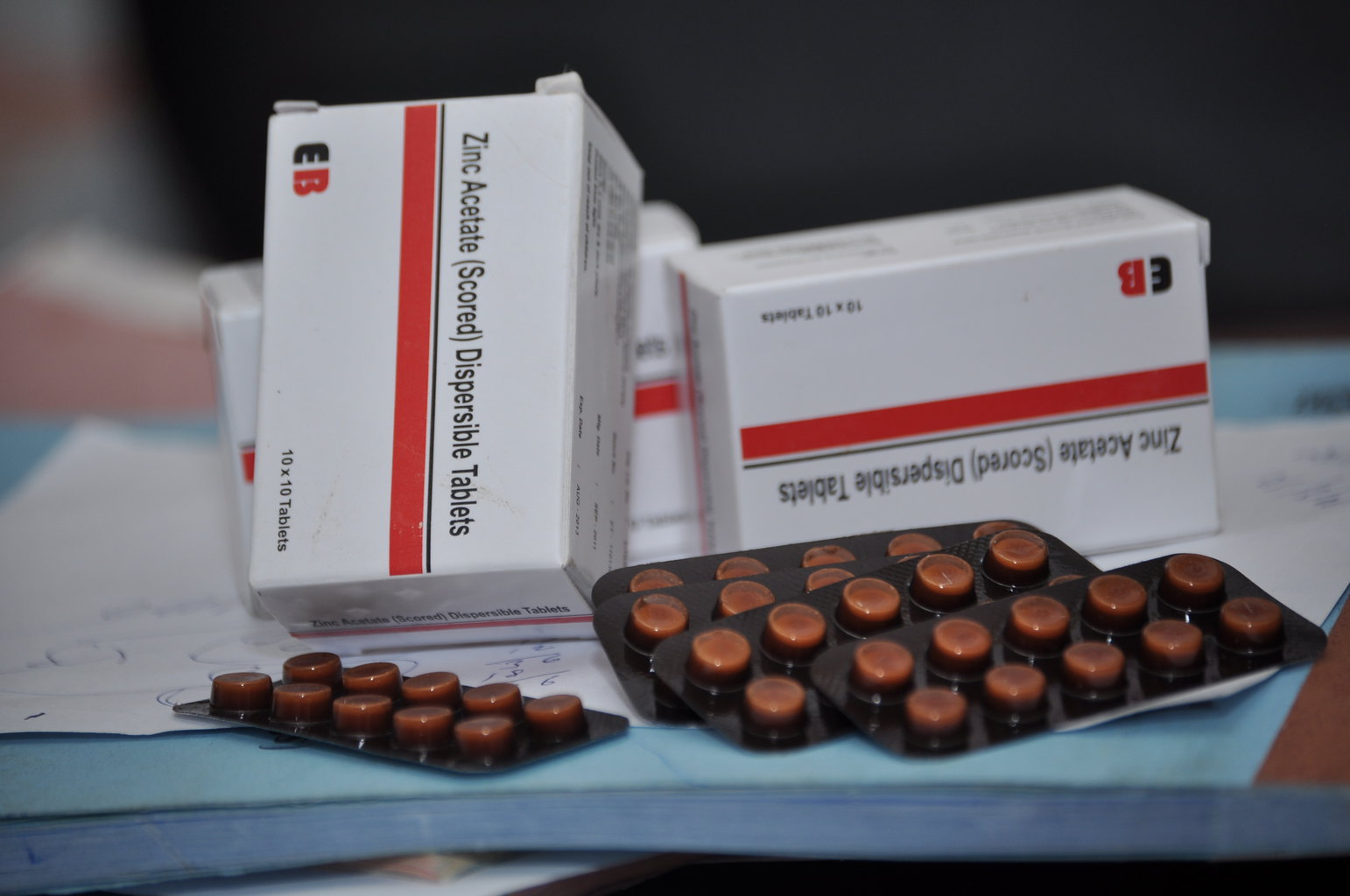Field Stories
Ten inspiring global nutrition stories
December 17, 2024
WP_Term Object
(
[term_id] => 49
[name] => Field Stories
[slug] => all-field-stories
[term_group] => 0
[term_taxonomy_id] => 49
[taxonomy] => news-category
[description] => Discover the personal stories of people whose lives have been impacted by better nutrition, and those working tirelessly to deliver it.
[parent] => 0
[count] => 180
[filter] => raw
)
Improving the quality of treatment for childhood diarrhoea in Ethiopia
Nutrition International’s technical assistance is targeted to improve knowledge of health workers so they are better equipped to provide effective treatment for diarrhoea in children under five with zinc and LO-ORS.
Posted on December 2, 2022
Although preventable and treatable, diarrhoea continues to be a leading cause of death among children under five worldwide. In the countries where Nutrition International works, we provide technical and financial support to governments to help improve access to zinc and low-osmolarity oral rehydration salts (LO-ORS) – an effective, low-cost diarrhoea treatment – and work to improve the capacity of health workers at all levels of the health system to deliver quality case management.
The combined use of zinc and LO-ORS is a lifesaving intervention for children experiencing diarrhoea because it reduces the duration and severity of episodes. This treatment has been proven to be incredibly valuable, especially among young children already vulnerable to undernutrition and repeat illness.
In Ethiopia for example, Nutrition International’s support includes training current health workers and preparing future professionals to effectively and safely treat diarrhoea in children.
We do this through practical training and mentorship programs in line with the World Health Organization’s guidelines on the integrated management of newborn and childhood illnesses (IMNCI). Below, we spotlight two examples of what this looks like in practice.
Gezahagn Dadi is an integrated management for childhood illnesses (IMCI) case team coordinator for children under five at the Gatama Health Centre in Hula district. In 2020, he started participating in Ministry of Health hosted workshops to better understand the benefits of zinc and LO-ORS and improve documentation practices.
“I didn’t focus on diarrhoea treatment and didn’t consistently apply the national diarrhoea treatment protocol and guidelines in the past,” Dadi said. “When I was assigned to manage childhood diarrhoea cases in the under-five clinics, the common practice was to only prescribe LO-ORS as a treatment. Furthermore, the skill gaps in my management and treatment of childhood diarrhoea cases were a hinderance in my work. It affected my performance in documentation as several cases went undocumented and proper formats were not used.”
Dadi is one of 460 healthcare providers from 46 primary healthcare units across eighty woredas (districts) receiving mentoring and training support provided by Nutrition International. These on-the-job coaching sessions are intended to help identify and address skill and knowledge gaps. Improvements include prescription practices for zinc and LO-ORS, case and data management, quality counselling between health workers and caregivers, and adhering to national guidelines of the integrated management of newborn and childhood illnesses.
These quarterly sessions include on-the-spot feedback, close follow-up with training attendees, job orientation, and on-site training. They also ensure that health units have adequate availability of diarrhoea treatment supplies such as job aids and chart-booklets.
Using an integrated and holistic approach to providing care is making an overarching difference. “The effects include improved trust between the healthcare providers and the communities, reduced child mortality and morbidity rates due to diarrhoea, and improved timely healthcare seeking behaviours,” said Nina Zeleke, Nutrition International’s Senior Program Officer in Ethiopia.
“After the trainings and regular coaching support provided by the woreda coaches and Nutrition International staff, I started prioritizing diarrhoea treatment,” Dadi shared. “To sum up it up, my practice of treating diarrhoea cases has improved. Currently, I am practicing using both zinc and LO-ORS and consistently using the national diarrhoea treatment protocols and guidelines when treating children.”

Nutrition International is also helping transform the next generation of healthcare providers.
In 2016, we worked alongside the Ministry of Health to support a review of the IMNCI protocols and pre-service child health courses for midlevel health workers that revealed gaps in pre-service training.
As a result of this, Nutrition International helped align Hawassa University’s curriculum with updated national treatment protocols for IMNCI to ensure preservice training was aligned with the protocols health workers are to use in practice. This will enable future doctors, nurses, midwives, and other medical professionals to move forward with updated knowledge to effectively treat diarrhoea and other childhood illnesses and conditions.
The recommendations for an improved curriculum included training on integrated management of newborn and childhood illnesses, skills labs for students to gain clinical practice for diarrhoea treatment, job aids to guide health workers, and improved data collection and recording methods. Nutrition International also coordinated with the Ministry of Health to review the Certification of Competency exam to reflect the updated curriculum to ensure new graduates are going out into the field with the knowledge needed.
“I believe the training improved the confidence and willingness of the graduates to use the job aids and comply with national treatment standards,” said Shewangizaw Mekonnen, Hawassa University’s Head of Nursing and an instructor of the revised curriculum.
“It is possible to see change within just a few years,” shared Girma Mamo, Nutrition International’s Deputy Country Director in Ethiopia. “You can reach as many as 2,000 to 4,000 healthcare providers in a year, who can influence service delivery.”
As an evidence-based and partnership driven organization, Nutrition International seeks to reduce the burden of child morbidity and mortality rates though diarrhoea management in children under five. Aside from community-based health interventions, large scale institutional programs like the ones running in Ethiopia are vital pathways to success for this goal.